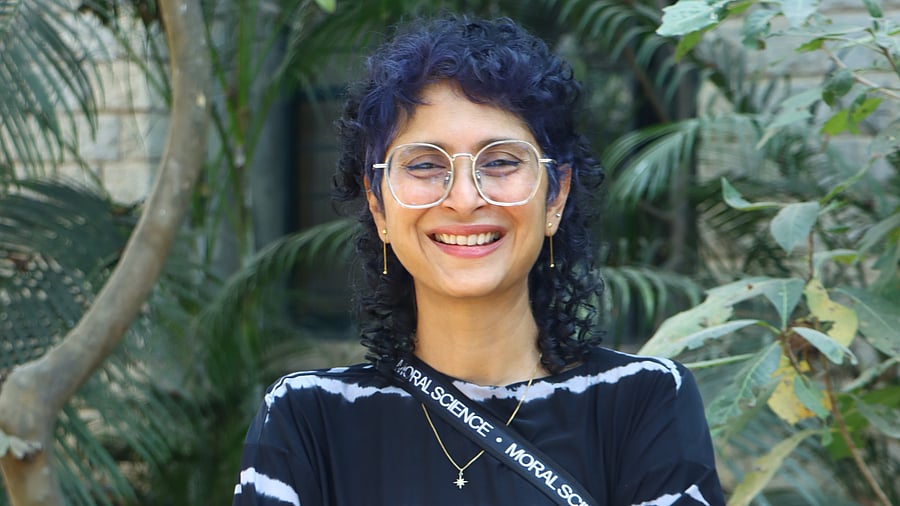
Special arrangement
Kiran Rao is back with her second film, ‘Laapata Ladies’ (Lost Ladies) after a 12-year gap — ‘Dhobi Ghat’ (2011) was her debut feature.
‘Laapata Ladies’ is set in 2001 Madhya Pradesh and revolves around an epic mess that ensues after two brides get exchanged on a train.
The film premiered at the Toronto Film Festival in 2023 and is set for theatrical release on March 1.
Kiran Rao began her career as an assistant director in ‘Lagaan’ (2001). She made her directorial debut with ‘Dhobi Ghat’ which explores the streets of Mumbai, the different classes of society, their jobs, hopes and dreams.
While Kiran’s first film explored city life, her latest feature is set in rural India and aims at women empowerment and entrepreneurship.
In conversation with Showtime, Kiran talks about the film and its relevant social themes.
How did you come across such an amusing story?
It was Aamir (Khan) who found the script. I had been trying to write for quite some time. I have a lot of scripts that I’ve developed but this was a story that Aamir was given as part of a script writing competition. It was submitted by a writer called Biplab Goswami and Aamir loved the story. He shared it with me and I absolutely loved it. I felt the story had a potential to touch upon a lot of issues, but also be highly entertaining at the same time.
What are the themes you’ve tried to explore?
There are multiple themes. We tried to layer them below the actual plot. But they are to do with women’s empowerment and education, sisterhood and masculinity. It doesn’t end at women’s empowerment, but in some way speaks about everybody’s need to find space for themselves, discover their own talent and chase their own dreams.
Technology changes every year. What kind of technological changes did you see while making a film after about 10 years?
There’s been a sea change in technology. ‘Dhobi Ghat’ was perhaps one of the last few films that was largely shot on film. A lot of people had already moved to digital, but I wanted to shoot on 16mm. Filmmaking formats change literally every year. With OTT and streaming platforms, we now watch films at home. I suppose the one thing that remains the same is a good story. While your editing software might change and we may get new cameras, your instincts as a storyteller remain pretty much the same.
What are some moments from the shooting of the film that stand out in your memory?
We shot with live trains on a railway station with 200 extras when the Omicron waves started in early January. Everybody was getting infected, including my DOP who got Covid just before we started shooting. So there were lots of hair-raising moments and challenges shooting during that period. But it was also wonderful because we had a chance to work on location with the secondary cast who were from the region. Living in villages with the actors was quite an adventure! Just like the two girls in the film have an adventure, we all had a bit of an adventure.
You’re from Bengaluru. Do you plan on making a film based in the city?
Oh, that’s interesting. I haven’t written anything set here. It’s the city of my birth. It’s a city where my family is from. My dad is from Mysore. Honestly, I would love to explore Karnataka more. I grew up in Calcutta and then went to Bombay and Delhi to study. So, apart from holidays and family gatherings and to visit family, I haven’t spent long periods of time here and I feel that this state has so much to see and explore. I will need to take some time out to dive into that and find the stories that I would like to tell.